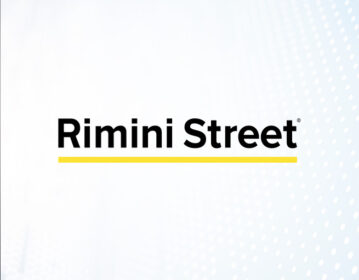Vast majority of respondents plan to run their current SAP applications to at least or beyond SAP’s planned 2025 end of ECC 6 mainstream maintenance window
LAS VEGAS, June 19, 2019 – Rimini Street, Inc. (Nasdaq: RMNI), a global provider of enterprise software products and services, the leading third-party support provider for Oracle and SAP software products and a Salesforce partner, today revealed the findings from its recent survey of SAP licensees conducted to better understand their plans for S/4HANA and the impact of SAP’s planned 2025 end of mainstream maintenance support for Business Suite 7 core applications on their IT roadmap plans. Of the IT leaders surveyed who are currently running SAP’s Business Suite 7 or older releases, two-thirds state they either have no plans to migrate to S/4HANA (35%) or are undecided about moving to S/4HANA (32%). The top reasons cited include “lack of resources,” “no business justification,” and a preference to “maximize investment in current applications.” The number of respondents who stated they have no plans to migrate or are undecided has risen slightly from a previous survey in 2017 – at that time 65% of IT leaders stated they had no plans to migrate or were undecided about S/4HANA. The current survey of SAP licensees was conducted in April 2019 and includes C-level executives, and VPs, directors and managers of IT.
SAP Customers Plan to Run Their Current Applications Beyond 2025
Survey responses confirm that nearly 80% of SAP licensees plan to continue to run their customized, mature SAP systems to at least or beyond SAP’s planned 2025 end of mainstream maintenance date for Business Suite 7. SAP licensees have made significant investments to implement and customize their highly functional SAP systems that meet their business needs and these existing systems can serve as their reliable mission-critical platform for many years to come without requiring the need to upgrade.
“Recently, there has been an increase in awareness of third-party maintenance services and we were able to seek advice from companies who already leverage Rimini Street’s services, which helped us make our decision quickly,” said Hiroshi Okada, director, Management Information Systems Unit, GREE, Inc. “Rimini Street’s business model focuses on the quality of service and an engineer’s support response times. As a result, their services provide multiple benefits including ultra-responsive, award-winning support by experienced engineers, and a strategic partnership to help accelerate an organizations’ business-driven IT strategies for competitive advantage versus being held captive by a vendor-dictated plan. By switching to Rimini Street, it became possible to invest in an IT environment with the latest technology, while maximizing the value of our current ERP system. At the same time we have been able to plan for and fund our business initiatives over the next five years.”
“We were experiencing the push many ECC 6.0 customers face with SAP trying to move everyone to the S/4HANA platform. When some of the larger SAP customers also refused to pay for that reimplementation in exchange for an immature product, we knew that S/4HANA was not a road we wanted to go down,” said Bob Leek, CIO, Multnomah County. “By switching to Rimini Street’s support, not only do we receive a far superior level of service, but we can continue to run our current SAP system for a minimum of 15 additional years from the time that we switched our SAP support to Rimini Street in 2016. This takes the pressure off having to migrate to SAP S/4HANA by 2025 when we see no return on that investment for the cost and disruption to the business. Additionally, as a result of moving our support, we have also been able to redirect our staff to focus on more value-added activities.”
Challenges with SAP Support
When asked about the value of SAP’s support, only 5% of all survey respondents stated they felt the fees for SAP support are well worth the value they receive in return. However, respondents also cited several challenges with SAP’s support, including “lack of support for customizations,” “issues take too long to resolve,” and “no new innovations or enough functional enhancements for what we are paying.” “Lack of expertise or adequate knowledge to resolve issues” also topped the list. Licensees are often left to self-support issues on their own by assigning internal resources or working with outside consultants. The inefficiencies with SAP’s support model can create considerable business disruption and a poor use of internal resources spent just to keep the system operational.
“With SAP’s expensive, time-consuming and resource-intensive forced migration to their S/4HANA product, SAP 4.x and ECC licensees have two choices – stay on SAP’s vendor-dictated roadmap and continue to invest in undesired, forced upgrades, or choose a Business-Driven Roadmap designed specifically around their business objectives,” said Seth A. Ravin, Rimini Street CEO. “SAP licensees who switch to Rimini Street support can extend their existing release lifespan and value for at least 15 more years, eliminate 2025 deadline fears, maximize savings and minimize system change risk while being able to invest operational savings into accelerated innovation. Rimini Street clients also gain flexibility and time to reassess the viability and business case of a potential future S/4HANA migration, or choose a next-generation system that best fits their future needs.”
To access a copy of Rimini Street’s report “How Customers are Responding to SAP’s Planned 2025 End of ECC6 Mainstream Maintenance Deadline” click here.


